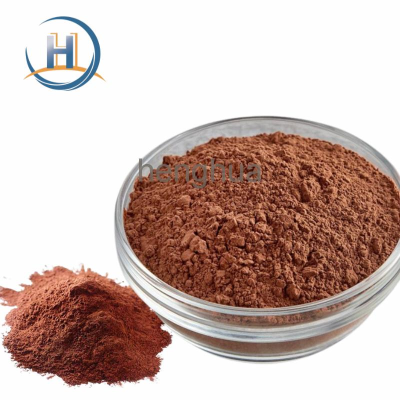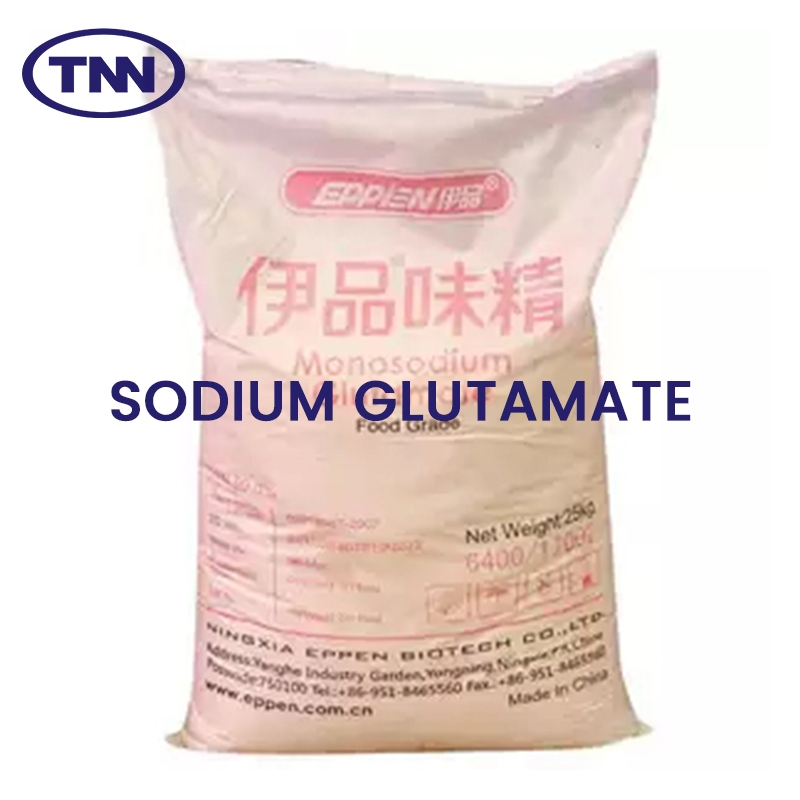-
Categories
-
Pharmaceutical Intermediates
-
Active Pharmaceutical Ingredients
-
Food Additives
- Industrial Coatings
- Agrochemicals
- Dyes and Pigments
- Surfactant
- Flavors and Fragrances
- Chemical Reagents
- Catalyst and Auxiliary
- Natural Products
- Inorganic Chemistry
-
Organic Chemistry
-
Biochemical Engineering
- Analytical Chemistry
-
Cosmetic Ingredient
- Water Treatment Chemical
-
Pharmaceutical Intermediates
Promotion
ECHEMI Mall
Wholesale
Weekly Price
Exhibition
News
-
Trade Service
Food Partner Network News On September 6, the Hunan Provincial Market Supervision and Administration Bureau announced the sampling inspection of 516 batches of food.
Among the 516 batches of samples of 23 categories of food such as puffed food, candy products, tea and related products, and alcohol, 9 batches of samples were found to be unqualified
.
Food Partner Network News Food Supervision and Management Sampling Grain Condiments Meat Products Dairy Products Beverages Canned Biscuits Frozen Beverages Potatoes Puffed Foods Fruit Products Tea AlcoholAmong the 516 batches of samples of 23 categories of food such as puffed food, candy products, tea and related products, and alcohol, 9 batches of samples were found to be unqualified
.
3 batches of drinking water were found to be unqualified
Unqualified drinking water detected in 3 batches of drinking waterAmong the unqualified foods, 3 batches of drinking water were found to be unqualified
.
Among them, 2 batches of detected Pseudomonas aeruginosa projects did not meet the national food safety standards, namely: drinking water sold by Jianghua Yao Autonomous County Yaorun Qianjia Mountain Spring Water Store with the nominal name Huashen Tea Fruit Beverage Factory in Jianghua Yao Autonomous County ;Yongshun County Xizhou Huluquan Second Store sells the nominal packaged drinking water produced by Yunshangpo Mountain Spring Water Factory in Yongshun County
.
.
Among them, 2 batches of detected Pseudomonas aeruginosa projects did not meet the national food safety standards, namely: drinking water sold by Jianghua Yao Autonomous County Yaorun Qianjia Mountain Spring Water Store with the nominal name Huashen Tea Fruit Beverage Factory in Jianghua Yao Autonomous County ;Yongshun County Xizhou Huluquan Second Store sells the nominal packaged drinking water produced by Yunshangpo Mountain Spring Water Factory in Yongshun County
.
Pseudomonas aeruginosa is an opportunistic pathogen, widely distributed in water, air, normal human skin, respiratory tract and intestinal tract, etc.
It is easy to survive in a humid environment and has strong resistance to disinfectants, ultraviolet rays, etc.
, there are health risks for people with weak resistance
.
"National Food Safety Standard Packaged Drinking Water" (GB 19298-2014) stipulates that the standard value of Pseudomonas aeruginosa is n=5, c=0, m=0, and the unit is CFU/250mL
.
The reason for excessive Pseudomonas aeruginosa in bottled drinking water may be due to improper protection of water source water and contamination of water bodies; some enterprises do not supervise environmental sanitation in place, operation is not standardized enough, and cross-contamination in the production process; in the circulation link, the storage time is long, The repeated use of buckets increases the risk of secondary pollution
.
It is easy to survive in a humid environment and has strong resistance to disinfectants, ultraviolet rays, etc.
, there are health risks for people with weak resistance
.
"National Food Safety Standard Packaged Drinking Water" (GB 19298-2014) stipulates that the standard value of Pseudomonas aeruginosa is n=5, c=0, m=0, and the unit is CFU/250mL
.
The reason for excessive Pseudomonas aeruginosa in bottled drinking water may be due to improper protection of water source water and contamination of water bodies; some enterprises do not supervise environmental sanitation in place, operation is not standardized enough, and cross-contamination in the production process; in the circulation link, the storage time is long, The repeated use of buckets increases the risk of secondary pollution
.
In addition, the coliform bacteria detected in the Longjing Mountain Spring packaged drinking water produced and sold by the Longjing Mountain Spring Pure Water Plant in Lanshan County did not meet the national food safety standards
.
.
Coliform is one of the commonly used indicator bacteria for food contamination at home and abroad
.
Unqualified coliform bacteria in the food indicate that the food has hygienic quality defects, suggesting that the food may be contaminated by intestinal pathogens, which is potentially harmful to human health, especially for the elderly and children
.
According to the "National Food Safety Standard Packaged Drinking Water" (GB 19298-2014), the standard value of coliform bacteria in packaged drinking water is n=5, c=0, m=0, and the unit is CFU/mL
.
.
Unqualified coliform bacteria in the food indicate that the food has hygienic quality defects, suggesting that the food may be contaminated by intestinal pathogens, which is potentially harmful to human health, especially for the elderly and children
.
According to the "National Food Safety Standard Packaged Drinking Water" (GB 19298-2014), the standard value of coliform bacteria in packaged drinking water is n=5, c=0, m=0, and the unit is CFU/mL
.
Heavy metal pollution and quality index problems detected in 4 batches of edible agricultural products
Heavy metal pollution and quality index problems detected in 4 batches of edible agricultural products Among the unqualified food, 4 batches of edible agricultural products were found to have heavy metal pollution and quality index problems
.
Among them, two batches of eggplants detected cadmium (calculated as Cd) did not meet the national food safety standards, namely: eggplant purchased by Qinhu Restaurant of Xiangtan University, and purple eggplant sold by BBK Commercial Chain Co.
, Ltd.
Zhuzhou Lukou Store
.
.
Among them, two batches of eggplants detected cadmium (calculated as Cd) did not meet the national food safety standards, namely: eggplant purchased by Qinhu Restaurant of Xiangtan University, and purple eggplant sold by BBK Commercial Chain Co.
, Ltd.
Zhuzhou Lukou Store
.
Cadmium (measured as Cd) is one of the most common heavy metal pollutants
.
"National Food Safety Standard Limits of Contaminants in Foods" (GB 2762-2017) stipulates that cadmium (calculated as Cd) is not contained in fresh vegetables (leaf vegetables, legumes, root and tuber vegetables, stem vegetables, and daylily).
) is limited to 0.
05mg/kg
.
Cadmium exceeding the standard may be the enrichment of cadmium in the environment during the planting process
.
vegetable.
"National Food Safety Standard Limits of Contaminants in Foods" (GB 2762-2017) stipulates that cadmium (calculated as Cd) is not contained in fresh vegetables (leaf vegetables, legumes, root and tuber vegetables, stem vegetables, and daylily).
) is limited to 0.
05mg/kg
.
Cadmium exceeding the standard may be the enrichment of cadmium in the environment during the planting process
.
There are also 2 batches of black sesame with acid value (calculated as fat) items that do not meet the national food safety standards, namely: black sesame sold by Qianrenfu supermarket in Qidong County; Black sesame seeds
.
.
The acid value mainly reflects the rancidity of the oil in the food
.
The National Food Safety Standard for Nuts and Seed Foods (GB 19300-2014) stipulates that the maximum limit of acid value in nuts and seed foods is 3mg/g
.
The reason for the excessive acid value in nuts and seed foods may be that the acid value in the raw materials purchased by the manufacturer exceeds the standard, or it may be related to improper control of product storage and transportation conditions
.
.
The National Food Safety Standard for Nuts and Seed Foods (GB 19300-2014) stipulates that the maximum limit of acid value in nuts and seed foods is 3mg/g
.
The reason for the excessive acid value in nuts and seed foods may be that the acid value in the raw materials purchased by the manufacturer exceeds the standard, or it may be related to improper control of product storage and transportation conditions
.
1 batch of tea was found to have pesticide residues exceeding the standard
1 batch of tea was found to have pesticide residues exceeding the standard Among the unqualified foods, one batch of tea was detected with excessive pesticide residues, which is: the first-picked gold black tea produced and sold by Jinshuiwan Ecological Leisure Villa in Suining County was found to have glyphosate that did not meet the national food safety standards
.
.
Glyphosate is a non-selective, non-residue herbicide that is very effective against perennial root weeds and is widely used in rubber, mulberry, tea, orchards and sugarcane fields
.
The National Food Safety Standard for Maximum Residue Limits of Pesticides in Foods (GB 2763-2021) stipulates that the maximum residues of glyphosate in tea shall not exceed 1 mg/kg
.
.
The National Food Safety Standard for Maximum Residue Limits of Pesticides in Foods (GB 2763-2021) stipulates that the maximum residues of glyphosate in tea shall not exceed 1 mg/kg
.
In addition to the above products, there is another batch of unqualified samples: sorbic acid and its potassium salts (calculated as sorbic acid) detected in the braised pork head meat sold by the Liuyang Economic and Technological Development Branch of Hunan Biyibi Trading Co.
, Ltd.
, When dehydroacetic acid and its sodium salt (calculated as dehydroacetic acid) and preservatives are used in combination, the sum of the proportions of their respective dosages to their maximum dosages does not meet the national food safety standards
.
, Ltd.
, When dehydroacetic acid and its sodium salt (calculated as dehydroacetic acid) and preservatives are used in combination, the sum of the proportions of their respective dosages to their maximum dosages does not meet the national food safety standards
.
For the unqualified food found in the random inspection, the market supervision departments of Zhuzhou, Yongzhou, Xiangtan, Xiangxi, Hengyang, Shaoyang, Changsha and other places have organized inspection and disposal, and urged food producers and operators to take measures such as removing, sealing, and recalling unqualified products.
Control risks, and deal with violations of laws and regulations strictly in accordance with the law; relevant market supervision departments should promptly urge the disclosure of risk prevention and control measures taken by relevant food producers and operators and the status of verification and disposal to the public
.
Control risks, and deal with violations of laws and regulations strictly in accordance with the law; relevant market supervision departments should promptly urge the disclosure of risk prevention and control measures taken by relevant food producers and operators and the status of verification and disposal to the public
.
Announcement of Hunan Provincial Market Supervision and Administration Bureau on the Sampling Inspection of 516 Batches of Food Safety (No.
25, 2022) Information on Unqualified Samples
25, 2022) Information on Unqualified Samples
(Source: Hunan Provincial Administration for Market Regulation)
(Source: Hunan Provincial Administration for Market Regulation)Food Safety Sampling Inspection Unqualified Food Information Sheet.
Food Safety Sampling Inspection Unqualified Food Information Sheet.
Related reports: Hunan Provincial Market Supervision and Administration Bureau Announcement on 516 Batches of Food Safety Sampling Inspection (No.
25, 2022)
Hunan Provincial Market Supervision and Administration Bureau Announcement on 516 Batches of Food Safety Sampling Inspection (No. 25, 2022)
25, 2022)
This article is edited by the Food Partner Network Food Information Center.
Reprinting is prohibited without authorization.
To reprint, please contact news@foodmate.
net
.







